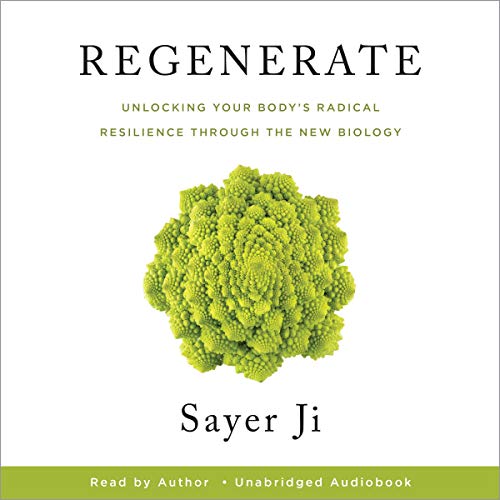 By Pat Robinson
By Pat Robinson
“Germs,” while globally vilified as the cause of millions of deaths, are also some of Nature’s most effective, evidence-based immune boosters.
How long can the Koch/Pasteur paradigm continue to dominate the global mainstream consciousness before the discoveries of the microbiome and New Biology are allowed a place?
- Saccharomyces boulardii has therapeutic value in treating Clostridium difficile infection.
- Supplementation of mothers and their babies with the probiotic Lactobacillus reuteri reduces igE-associated eczema and may reduce respiratory allergic disease later in life.
- Lactobacillus reuteri and Bifidobacterium lactis supplementation of children fed formula reduces adverse events, e.g. antibioic use, diarrhea, etc.
- Long term use of probiotics and synbiotics reduce the incidence and severity of respiratory diseases during the cold season.
- Probiotic bacteria reduce the duration and severity of common cold episodes.
- Postnatal probiotic and prebiotic treatment is safe and increases resistance to respiratory infections during the first 2 years of life.
- Probiotic therapy has therapeutic value in treating Klebsiella infection in children.
- Lactobacillus rhamnosus and Lactobacillus reuteri reduce the duration of diarrhea in children with mild gastroenteritis.
- Lactobacillus acidophilus can alleviate the symptoms of perennial allergic rhinitis.
- Acute non- inflammatory gastroenteritis improvement is accelerated by probiotic yogurt consumption.
- Lactobacillus reuteri significantly shortens the duration of watery diarrhea associated with rotavirus gastroenteritis in children between 6 and 36 months.
- The probiotics Bifidobacterium breve and Lactobacillus casei reduce complications in patients with SIRS.
- Probiotics demonstrate immunomodulatory effects in atopic pediatric patients by increasing the TH1 immune response which counterbalances the dominant TH2 immune response.
- Lactobacillus plantarum reduces the negative effects of antibiotic treatment with Clostridium difficile.
- Probiotics may have a preventive and therapeutic role in antibiotic-associated diarrhea subsequent to treatment for Clostridium difficile.
- A combination of lactobacillus reuteri and lactobacillus rhamnosus were helpful in vaginosis and bacterial vaginitis treatment.
- Saccharomyces boulardii inhibits Escherichia colia infection in children.
- Probiotic strains from breast milk are superior to antibiotics in the treatment of infectious mastitits.
- Human breast milk contains Lactobacillius strains which are effective in the treatment of mastitis during lactation.
- Probiotics prophylaxis was as effective as antibiotic prophylaxis in children with persistent primary vesicoureteral reflux.
- Supplemental Lactobacillus plantarum is effective in reducing pancreatic sepsis in patients with acute pancreatitis.
- Probiotics appear to have a role in preventing recurrent urinary tract infections in women.
- The consumption of fermented milk with Lactobacillus casei in lactating mothers has a positive effect on the mother and offspring’s immunological status.
- Probiotics prevent IgE-associated allergy until age 5 years in cesarean-delivered children.
- Probiotics may reduce postoperative infections after abdominal surgery.
- Probiotics have a favorable effect on immune status in multiple sclerosis patients.
- Lactobacillus rhamnosus GG and Bifidobacterium lactis are safe and effective in reducing early otitis media and antibiotic use and the risk of respiratory infections during the first year of life.
- Saccharomyces Boulardii diminishes bacterial infections and offers health benefits in the therapy of acute necrotizing pancreatitis.
- Postnatal probiotic and prebiotic treatment is safe and increases resistance to respiratory infections during the first 2 years of life.
- Lactobacillus reuteri may have therapeutic potential in the treatment of allergic airway disease.
- Consumption of a fermented dairy product containing the probiotic Lactobacillus casei reduces the duration of respiratory infections in the elderly.
- Specific strains of lactobacilli isolated from kimchi can effectively suppress airway hyper-responsiveness.
- Probiotics manifest anti-influenza and ant-herpes activity.
- Probiotics may contribute to a reversal of colitis through modulating the intestinal barrier properties.
- Cow milk allergy symptoms are reduced in mice fed dietary synbiotics during oral sensitization with whey.
- Gluten induces coeliac-like disease in sensitized mice that is prevented by probiotics.
Pat Robinson was in the medical industry for decades. She has invested over 10,000 hours learning about natural alternatives, reading hundreds and hundreds of medical research studies, and assisting thousands of people about holistic health issues. Pat is passionate about sharing the amazing power of the body to heal itself.
Pat’s Farmacy focuses on wellness promotion through whole food nutrition, so that you can Heal Thyself!
Disclaimer: This article is not intended to provide medical advice, diagnosis or treatment. Views expressed here do not necessarily reflect those of GreenMedInfo or its staff.
Source: GreenMedInfo
This article is copyrighted by GreenMedInfo LLC, 2023
Visit our Re-post guidelines
Become a Patron!
Or support us at SubscribeStar
Donate cryptocurrency HERE
Subscribe to Activist Post for truth, peace, and freedom news. Follow us on SoMee, Telegram, HIVE, Flote, Minds, MeWe, Twitter, Gab, and What Really Happened.
Provide, Protect and Profit from what s coming! Get a free issue of Counter Markets today.


Be the first to comment on "36 Immune System Benefits of Probiotics"